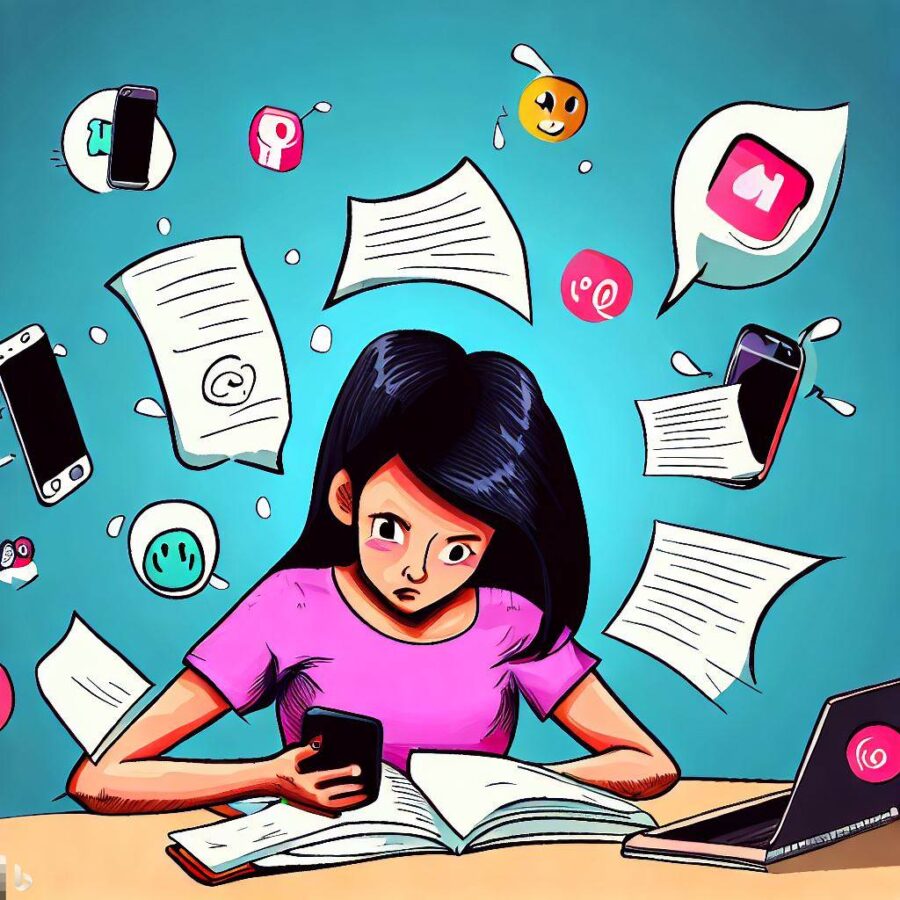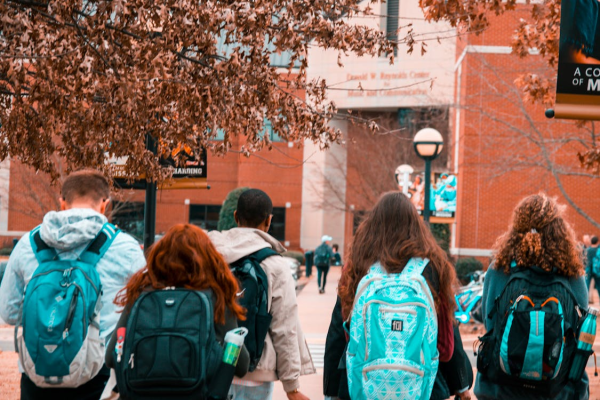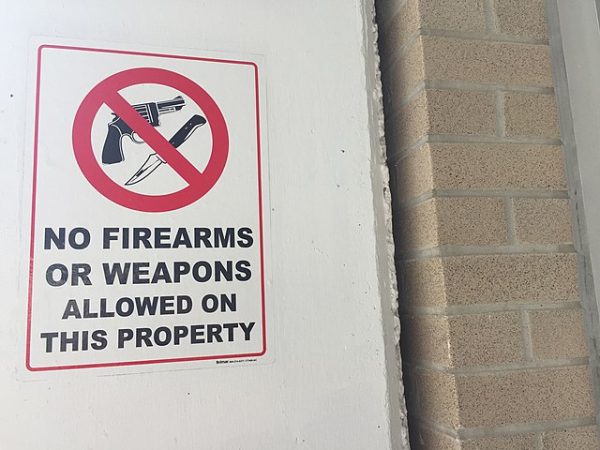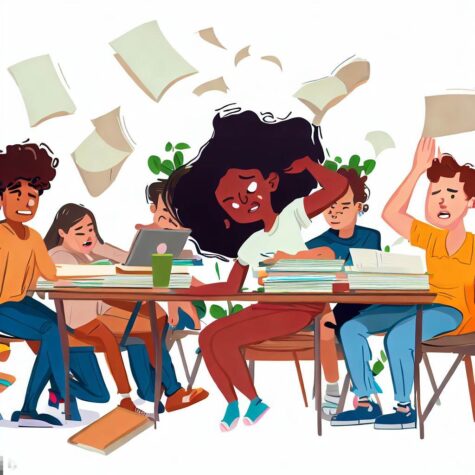Teens Struggle with Social Media Distractions
For weeks, Isa, a Taft Sophomore, had been dreading this day. She was aware that she had to put in some serious effort and concentrate to finish her final essay. She cleared her calendar, and sat down to work in the library’s quiet area. Her phone would ping with a fresh social media alert every time she attempted to start writing, prompting her to check her notifications. She made an effort to ignore it, but she was unable to focus due to all the interruptions.
In recent years, social media has drastically changed the way we engage with the world, connect, and learn and has become an essential part of our everyday lives. Social media, especially for teenagers, is omnipresent and has many advantages, including helping users keep in touch with friends and family, find new hobbies and interests, and even encourage creativity and self-expression.
However, on the downside, social media can be quite distracting, which is a drawback, especially for teens who are still learning self-control and time management. Social media may significantly divert teens’ attention and provide some advice on how to reduce its negative effects.
One of the primary reasons why social media is so distracting is that it is designed to be addictive. Social media platforms like Instagram, TikTok, and Snapchat use various tactics, such as notifications, likes, and comments, to keep users engaged for as long as possible. For teens, who are often more vulnerable to peer pressure and the fear of missing out (FOMO), social media can quickly become a time-consuming and obsessive activity.
Social media may also make it difficult for teenagers to concentrate and focus on demanding responsibilities like academics or extracurricular activities. 72% of students said they frequently or occasionally viewed their social media platform notifications while completing their schoolwork or studying, according to Pew Research Center research. They may be much less productive due to their continual multitasking, which also affects their academic performance and grades.
Another concern with social media diversions is that they might be harmful to one’s mental health. Excessive social media use has been linked to emotions of worry, despair, and even low self-esteem, according to research In addition, cyberbullying, which has serious and pervasive consequences on younger people’s mental health, can be perpetrated on social media.
Here are some following tips to help minimize the negative effects of social media on teens:
- Time management: Encourage yourself or teens to limit their social media use by setting specific boundaries or time limits. For example, they could limit their social media use to a specific time of day or set a maximum amount of time they spend on it each day.
- Be in a distraction-free environment: Help teens to create a space that is conducive to concentration and focus. This could mean setting up a quiet study area, turning off notifications, or even using apps that block social media during specific hours.
- Encourage healthy habits: Encourage teens to start healthy habits, such as exercising, meditating, or spending more time outdoors. These activities can help them reduce stress, improve their mental health, and also boost their academic performance.
- Monitor social media use: Keep track of your teen’s social media use and intervene if necessary. If you notice that they are spending too much time on social media or that it is impacting their mental health or academic performance, it may be time to have a conversation with them about the issue if you’re the parent.
In conclusion, social media may benefit and harm teenagers. While there are many advantages, such as maintaining friendships and finding new interests, it may also be quite distracting and have a severe influence on students’ mental health and academic performance. We can assist kids in minimizing the negative impacts of social media distractions and enjoying its advantages without compromising their well-being by setting limits, fostering a distraction-free atmosphere, promoting healthy behaviors, and monitoring social media use.

















William • Mar 30, 2024 at 10:17 pm
This is a huge problem and the article describes it well.
What is absolutely amazing is that nobody seems to have any solutions for dealing with this. How is a teen supposed to do homework on a laptop when they can switch and look at YouTube or any other site? Are there tools out there that actually work? The suggestions in this article are simplistic. The problem is HUGE.
brenda • Feb 7, 2024 at 10:14 am
In my opinion I think gen z is Horrible!! they spend their time on social media all the darn time
Joe Biren • Feb 5, 2024 at 10:33 am
Real teens are so addictive nowadays Kids these days
Joe Biren • Feb 5, 2024 at 10:30 am
real